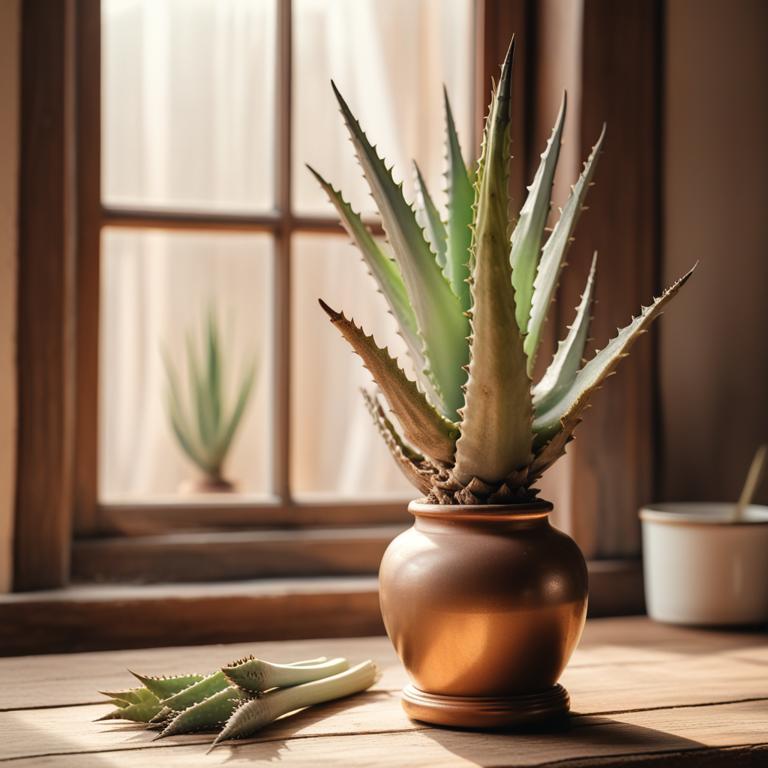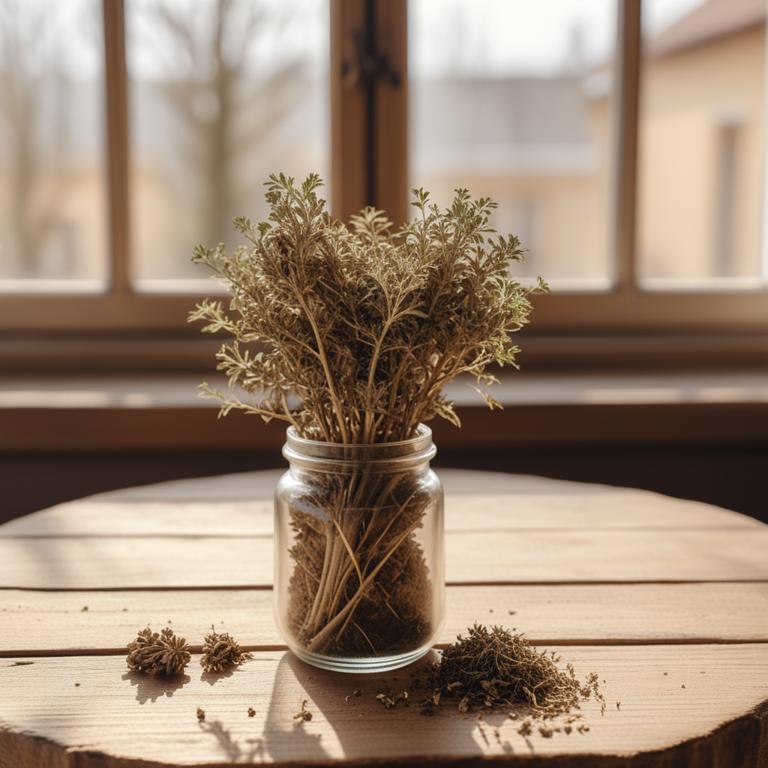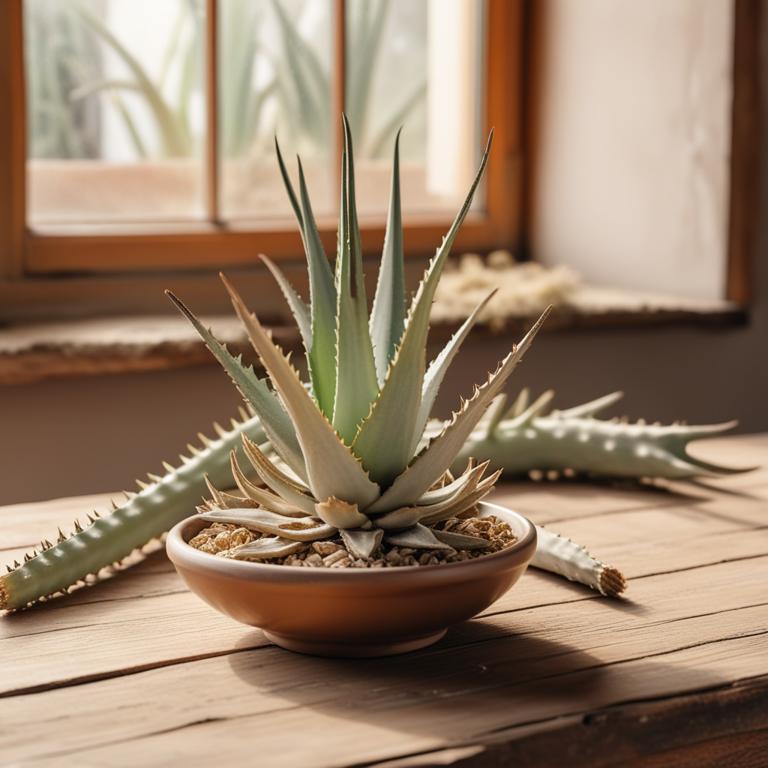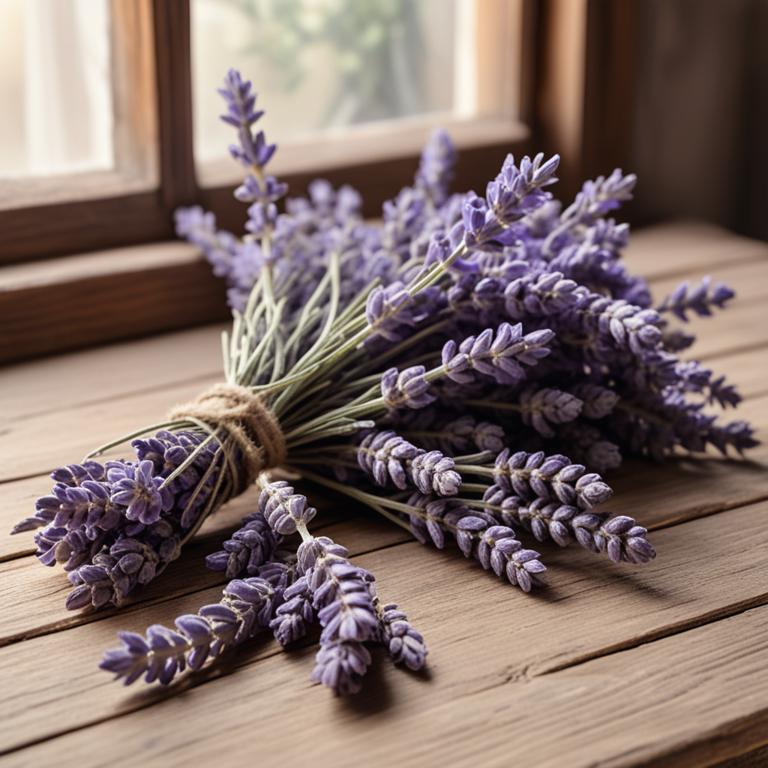Updated: Dec 1, 2024
Dark Circles: Causes and Herbal Remedies for a Refreshed Look
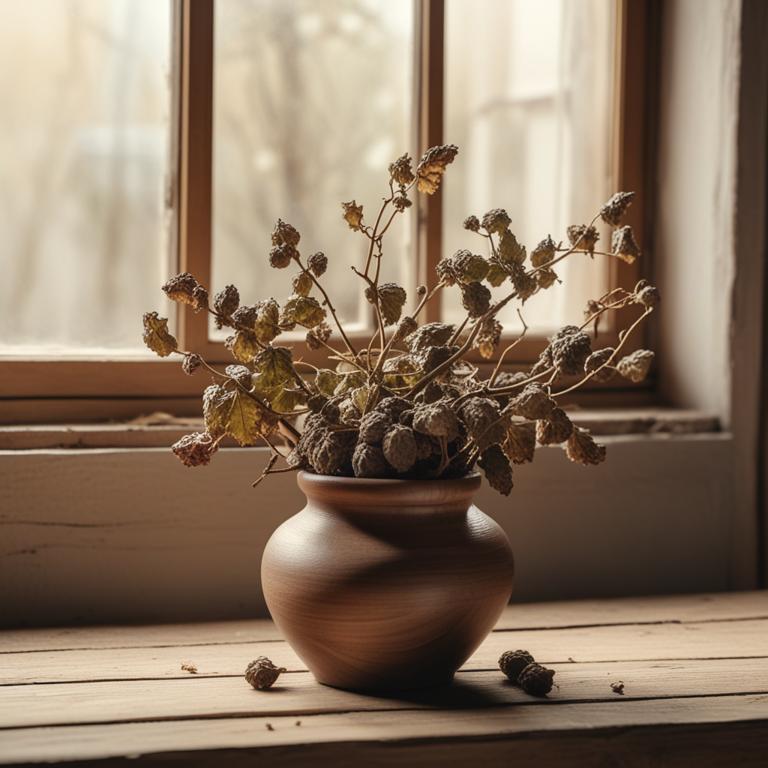
Dark circles under the eyes can make you look tired and older than you are.
They can also affect how you feel about yourself and make you less confident. But what causes them?. Dark circles are usually the result of poor circulation, fatigue, and genetics. They can also be caused by lack of sleep, stress, and poor diet. Some herbs can help reduce the appearance of dark circles.
Cucumber is known for its cooling and soothing properties, which can help reduce puffiness under the eyes. Aloe vera, on the other hand, has anti-inflammatory properties that can help reduce swelling. Another herb, chamomile, can help calm the skin and reduce dark circles. You can use these herbs in various ways to get rid of dark circles. You can make a tea out of chamomile and drink it to relax and reduce puffiness. Aloe vera can be applied directly to the skin as a gel to reduce swelling.
Cucumber can be chilled in the refrigerator and used as a compress to cool and soothe the skin.
Table of Contents
- What are the causes of dark circles under the eyes?
- What are the benefits of using herbal remedies for dark circles?
- What are the main medicinal plants that help with dark circles?
- What herbal treatments are most often utilized for dark circles?
- What herbs should you exclude from your routine if you have dark circles?
- FAQ
What are the causes of dark circles under the eyes?
The main causes of dark circles are a combination of factors that affect our skin and overall health.
Genetics play a role as some people may be more prone to dark circles due to their family history. This is because some people naturally have thinner skin under their eyes, making the blood vessels more visible, giving the appearance of dark circles.
Dehydration is another cause as when we don't drink enough water, our skin becomes dry and the blood vessels under the eyes become more prominent, leading to a dark appearance. Lack of sleep and fatigue also contribute to dark circles as when we're tired, our body produces more cortisol, which causes the blood vessels to dilate, making them more visible. Additionally, allergies can cause dark circles as when we have an allergic reaction, our body releases histamine, which can make the blood vessels under the eyes more visible, leading to dark circles.
Furthermore, allergies can also lead to puffy eyes, which can make dark circles appear more prominent.
What are the benefits of using herbal remedies for dark circles?
Using herbs to reduce dark circles under the eyes can be really helpful.
The main benefits include reducing puffiness and swelling, which can make your eyes look smaller and more tired. Herbs can also help to improve circulation and reduce water retention, which can contribute to dark circles.
By reducing inflammation and swelling, herbs can make your eyes look more refreshed and awake. They can also help to brighten up the skin under your eyes, making it look smoother and more even-toned. Additionally, some herbs have antioxidant properties, which can help to protect your skin from damage caused by free radicals and pollution.
This can lead to a more even-toned and healthy-looking complexion, including the skin under your eyes.
What are the main medicinal plants that help with dark circles?

Dark circles under the eyes can be unsightly and make you look tired, even if you're feeling fine.
Herbs can help reduce their appearance. Ginkgo biloba is a good choice because it improves blood flow, which helps to reduce the visibility of dark circles by bringing more oxygen and nutrients to the skin. This herb also has anti-inflammatory properties that can help to calm and soothe the skin. Rosmarinus officinalis, also known as rosemary, is another herb that can help to improve circulation and reduce puffiness. It's also known for its antioxidant properties, which can help to protect the skin from damage caused by free radicals. Achillea millefolium, or yarrow, is a natural astringent that can help to reduce the appearance of dark circles by constricting blood vessels and reducing swelling.
It also has anti-inflammatory properties that can help to soothe and calm the skin. Aloe barbadensis, or aloe vera, is a popular herb that's known for its soothing and calming properties. It can help to reduce puffiness and inflammation, making it easier to see the natural color of the skin underneath the dark circles. Ruscus aculeatus, or boxwood, is another herb that can help to reduce the appearance of dark circles by constricting blood vessels and reducing swelling. These herbs can be used in different ways to help reduce dark circles. Some can be applied topically, either in their raw form or as part of a cream or serum. Others can be consumed as a tea or supplement to help improve circulation and reduce inflammation from the inside out.
When used together, these herbs can be a powerful combination for reducing the appearance of dark circles and making you look more rested and refreshed.
What herbal treatments are most often utilized for dark circles?
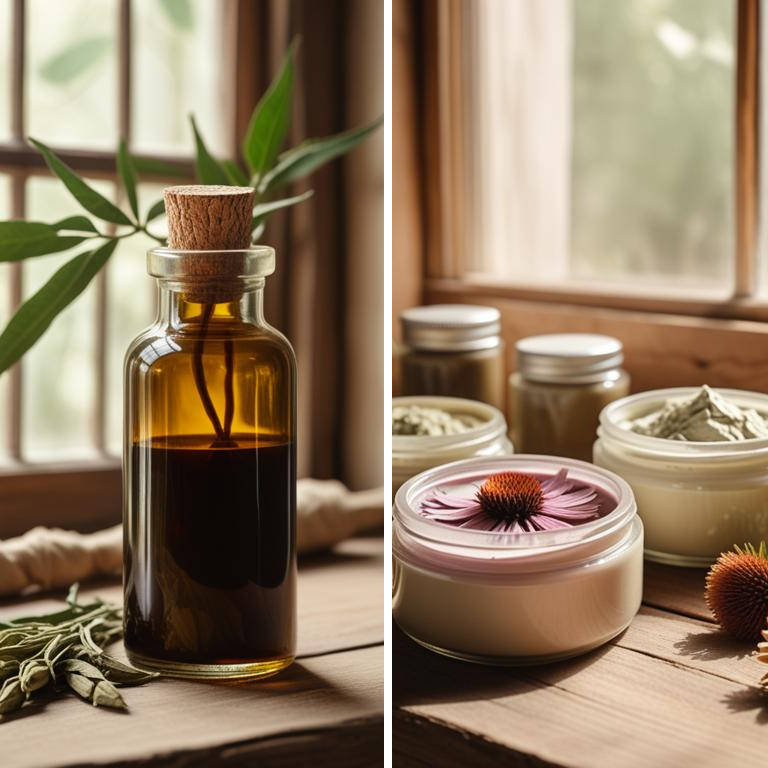
When it comes to getting rid of dark circles, herbal preparations can be really helpful.
A decoction is a strong liquid made from boiling herbs in water, and it's great for this purpose because the heat helps to release the active ingredients from the herbs, making them more effective. For example, a decoction made from the herb chamomile can help to soothe and calm the skin around your eyes, reducing puffiness and darkness. A tincture is a liquid extract of herbs that's usually taken by mouth, but it can also be applied topically to the skin. Tinctures are good for dark circles because they're highly concentrated, so a little bit can go a long way. A tincture made from the herb gotu kola, for instance, can help to improve circulation and reduce swelling, which can contribute to dark circles. An infusion is similar to a decoction, but it's made by steeping herbs in hot water instead of boiling them.
This makes it a bit gentler on the skin, so it's a good option for people with sensitive eyes. An infusion made from the herb peppermint can help to cool and refresh the skin, reducing puffiness and darkness. If you prefer a cream or gel to a liquid, herbal preparations can be made in these forms too. A cream made from the herb aloe vera can help to moisturize and soothe the skin, reducing dryness and inflammation that can contribute to dark circles. A gel made from the herb green tea can help to calm and cool the skin, reducing puffiness and darkness. All of these herbal preparations can be made at home, and they're a great alternative to commercial products that can contain harsh chemicals and artificial ingredients.
By using natural herbs and gentle preparation methods, you can create a treatment that's tailored to your specific skin type and needs.
Additional Resources:
What herbs should you exclude from your routine if you have dark circles?
If you have dark circles, it's a good idea to be cautious with Hypericum perforatum, also known as St. John's Wort.
This herb can cause your blood vessels to dilate, which might worsen the appearance of dark circles. Similarly, Valeriana officinalis, or valerian root, can also cause your blood vessels to expand, leading to more prominent dark circles.
Ephedra sinica, often used in energy-boosting supplements, can cause your blood pressure to rise, which may increase the visibility of dark circles. It's also worth noting that Ephedra sinica can be quite harsh on the body, so it's best to avoid it altogether. Echinacea purpurea, commonly used to boost the immune system, can cause your face to swell, which might make dark circles look worse.
Panax ginseng, also known as Asian ginseng, can cause your blood vessels to dilate and your face to flush, both of which might worsen dark circles.
FAQ
Are there any specific herbs that can prevent dark circles?
Caffeine and vitamin K rich herbs like parsley and chamomile are said to help reduce dark circles.
The caffeine helps improve blood circulation, while vitamin K promotes blood clotting and reduces swelling.
These herbs can be consumed as tea or added to food for their potential benefits.
Is it safe to use herbal remedies for dark circles during pregnancy?
When it comes to using herbal remedies for dark circles during pregnancy, it's best to be cautious.
Some herbs can affect the baby or cause complications. For example, herbs like chamomile and peppermint are generally considered safe, but others like licorice root and ginseng might not be.
Check the ingredients carefully and use small amounts to be on the safe side.
Are there any herbs that can reduce the frequency of dark circles?
Some herbs like peppermint and chamomile may help reduce the appearance of dark circles.
Peppermint's cooling properties can constrict blood vessels, while chamomile's anti-inflammatory properties can soothe and calm the skin.
Consuming these herbs in tea or applying them topically may have a positive effect.
Can i combine different herbal remedies for dark circles?
You can try combining different herbal remedies for dark circles, but be cautious.
Some herbs, like chamomile and peppermint, might react with each other. For example, if you use peppermint to cool the area, it could make chamomile's calming effects less effective.
Start with small amounts and see how your skin responds.
Related Articles
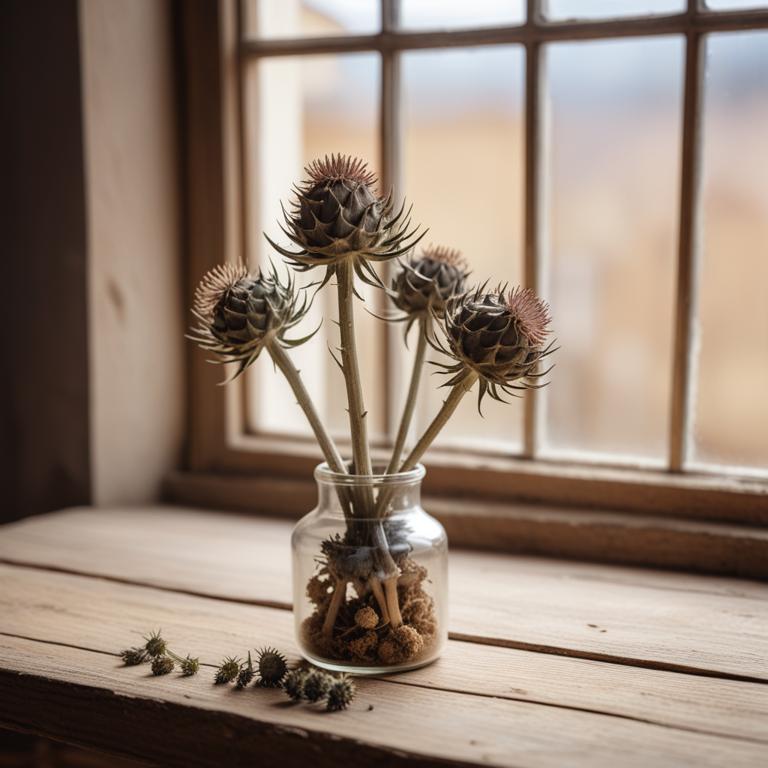
Medicinal Herbs and Herbal Remedies for Dry Lips: Causes and Treatment
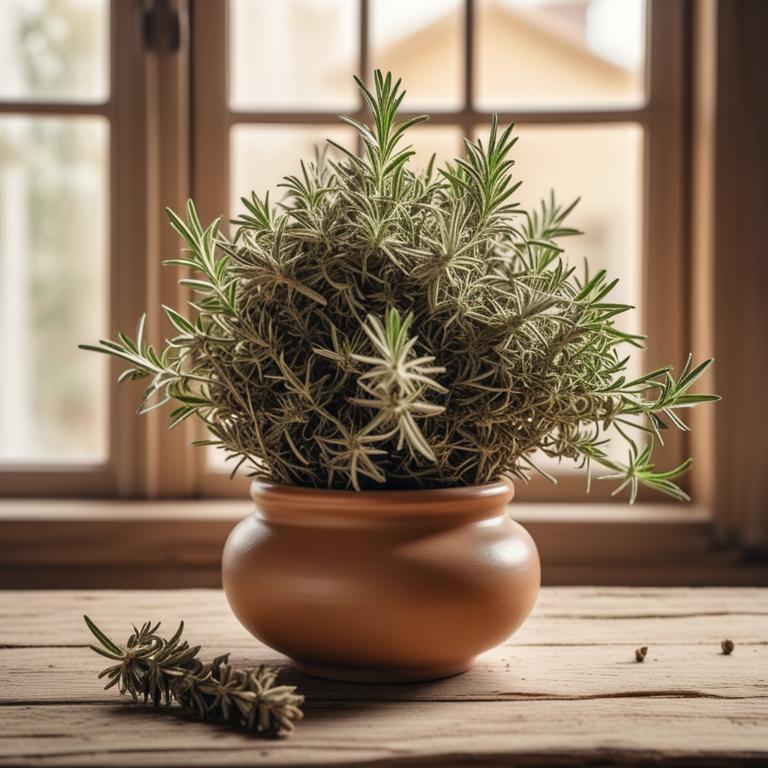
Understanding and Treating Oily Skin with Medicinal Herbs and Preparations
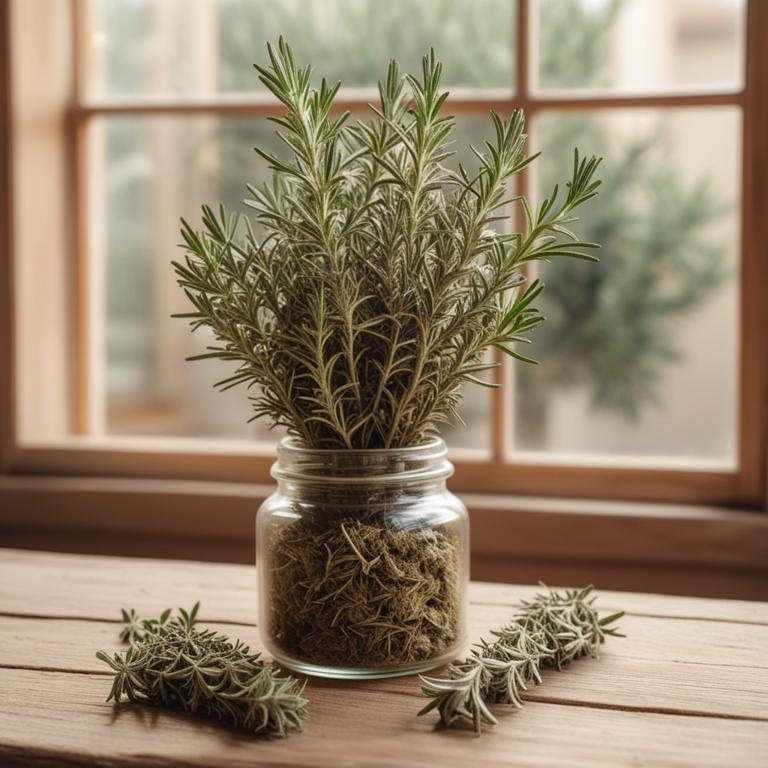
Frizzy Hair Causes, Medicinal Herbs, and Natural Preparations
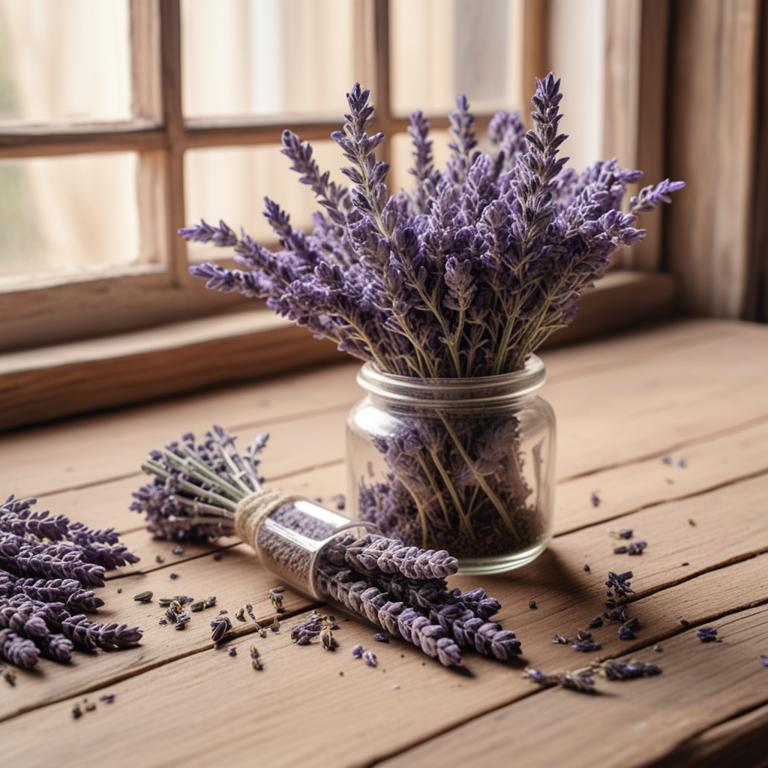
Causes and Herbal Solutions for Oily Hair
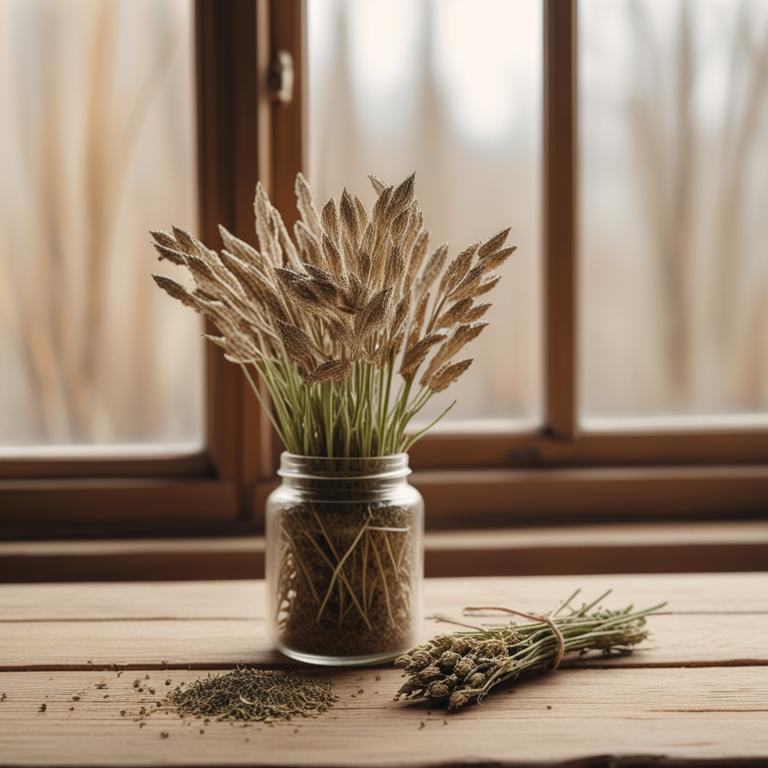
Treating Burns: Common Causes, Herbal Remedies, and Natural Preparations
